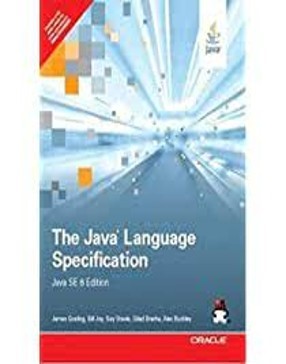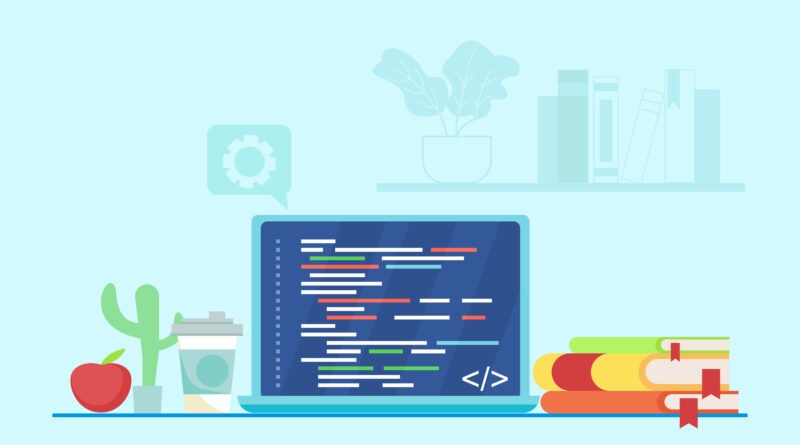The Top 5 Best Books on Java Programming
Introduction
Assuming you are feeling that you have read every one of the fundamental books on Java and have nothing new to read, or you are searching for cutting-edge books for experienced Java developers then you have come to the ideal location. Java is evolving constantly. The Java virtual machine, garbage collector, and other tools used in Java Web development are also changing alongside the language; subsequently, it is currently the perfect opportunity to take a look at a portion of the more up-to-date Java books which are delivered in most recent 5 years to learn new elements and devices of Java.
Even though classics like Effective Java and Java Concurrency in Practice are still relevant for learning good programming practices and the basics of multithreading and concurrency, you should also look to the future. I highly recommend these books to every Java programmer. Learn about various features like lambdas, stream, JDK enhancements, G1 garbage collector, and JVM performance improvements made in the last 5 years by reading this book. Now, back to the point, here’s the list of the top 5 best books to learn Java for beginners and experts.
Book 1: The Java Language Specification

Author: James J. Gosling, Alex Buckley, Bill Joy, Gilad Bracha, Jr. Steele, Guy L.
Published: 1996
A. The Plot Summarise of the book
The Java programming language is covered in great detail, accuracy, and completeness in this book. Lambda expressions, method references, default methods, type annotations, and repeating annotations are just a few of the new features included in Java SE 8. In addition, the book carefully distinguishes between compilers’ actual behaviour and the formal language rules in a number of explanatory notes.
B. Best Thought from the book
- It is composed by the maker of the language, so the ideas are made sense from top to bottom and the author has attempted to become familiar with the ideas with the assistance of genuine models.
- This book’s examples are intelligent, concise, and clear.
- Incorporates every one of the ideas included in Java SE 8.
- This book discusses notes in detail.
Book 2: Thinking in Java

Author: Bruce Eckel
Published: 1998
A. The Overview of the Book
My friends, Thinking in Java is the book for you if you want to think in Java! This practical guide will teach you how to use the best Java features to write the most effective Java code. More than 700 compiling files and more than 500 working Java programs have been rewritten for the most recent Java edition in this book. Thinking in Java covers a variety of topics, including design patterns, XML introduction, concurrency, and more, beginning with an object-oriented introduction for both novices and experts. Even if you’ve been studying and coding in Java for years, this book will still be useful to you.
The only book I know of that explains why Java exists is Thinking in Java; why it Works the way it does, why it doesn’t always work, why it is better than C++ and why it isn’t, and why it was designed the way it is. Thinking in Java is the best Java book for people who think. It also teaches the what and how of the language well.
B. Best Thought from the book
- Present the material each basic move toward turn with the goal that you can undoubtedly process every thought prior to continuing on.
- Use examples that are as brief and straightforward as you can.
- Keep each section sufficiently focused.
- The given projects run with practically no blunders or exemptions.
Book 3: Effective Java

Author: Joshua Bloch
Published: 2001
A. The Overview of the Book
If you have learned Java basics and presently need to finish some genuine work, then Effective Java is the most ideal book for you! It will assist you with getting inside and out training about the 78 developer’s basic guidelines, which are working answers for the different ordinarily accessible programming difficulties. Effective Java covers a variety of topics, including brand-new design patterns that highlight the best aspects of various features like generics, enums, autoboxing, and annotations. In order to ensure that you understand each of these ideas, they are explained in detail and with plenty of examples.
B. Best Thought from the book
- It discusses the new library features included in Java 7, 8, and 9.
- It sticks to coding guidelines.
- The exercise is testing.
- The examples are brief and to the point.
Book 4: Head First Java: A Brain-Friendly Guide

Author: Kathy Sierra, Bert Bates
Published: 2003
A. The Overview of the Book
The book is exactly what its name says it is. Head-First Java is the way to go if you are sick and tired of reading Java! As the title suggests, this book is a brain-friendly guide. In addition, as opposed to a text-heavy approach that can quickly become monotonous, it provides a format that is more visual to engage your brain. Even with its popularity among Java programmers, the book has not been updated since Java 5.0.
Beginning with the fundamentals of programming, Head-First Java moves on to more advanced topics like threads, network sockets, distributed programming with RMI, and so on. Therefore, Head-First Java is essentially a multisensory learning experience that will accelerate your progress toward becoming a genuine Java programmer.
B. Best Thought from the book
- The ideas are made sense of outwardly which causes it to differ from other books.
- It contains, areas of strength for puzzles, secrets, and soul-looking through interviews with renowned Java objects to draw in you in a wide range of ways.
- The illustrations in the book are satirical, making the concepts simple to comprehend.
Book 5: Core Java Volume I–Fundamentals

Author: Cay S. Horstmann, Gary Cornell
Published: 2007
A. The Overview of the Book
Core Java Volume I is the book for you if you want to learn the fundamentals of Java! With a lot of examples, most of which show modularization, which demonstrates code that is easier to manage and change, it will help you learn Java and API in depth. The topics covered in the chapters of Core Java Volume I – Fundamentals range from the fundamentals like variables, data structures, classes, and generics to advanced topics like objects, collections, lambda expressions, Swing design, concurrency, and functional programming.
B. Best Thought from the book
- Using Java’s standard collections to boost performance and productivity.
- Implement efficient exception handling and debugging to strengthen programs.
- Using the Swing toolkit, create graphical user interfaces that run on multiple platforms.
- With generic programming, you can create code that is safer and more reusable.
Conclusion
In this article, we have seen the Top 5 Best Books on Java Programming that you can add to your shelf. These Java books cover different programming regions, including centre Java basics, structures, plan designs, and thus substantially more. These books are fantastic instruments for all Java designers, from novices to cutting-edge clients. Start your Java journey with a number of important resources. These books could be a great way to learn more about Java and serve as a guide for developers learning Java at any level. Thank you for staying so far with us!
Also Read
The Top 5 Best Books on Cloud Computing
